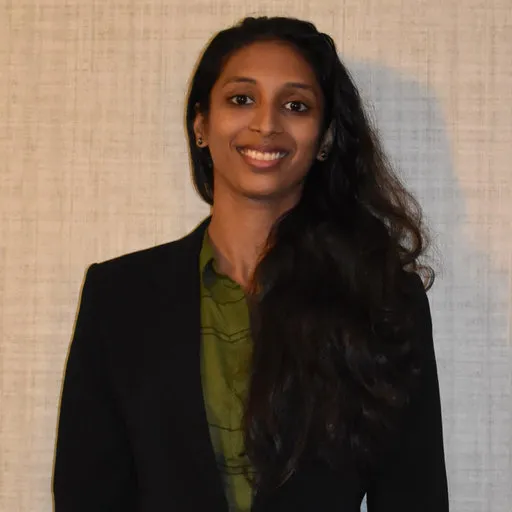
I hope you would agree that we cannot do without our mobile for long! This is the reason why we prefer a mobile that can be charged rather quickly so that we can continue our work or mindless scrolling on the phone. But do you know that fast charging can be detrimental to the life of the phone battery and can in extreme cases lead to battery explosion as well! The same issue troubles the electric vehicle sector as well where battery explosion accidents are one of the prime concerns of consumers, companies and regulatory authorities. Battery manufacturers and researchers across the world are looking for ways to minimize the battery damage associated with fast charging. Dr Resmi Suresh, Assistant Professor at IIT Guwahati and Associate Researcher at RBCDSAI, IIT Madras is also in the same league as she is working to make batteries safer for various applications.
Born to a banker dad and a homemaker mom in a Malappuram district of Kerala, Resmi grew up and did her schooling in this town only. Resmi was quite inspired by her elder sister and decided to follow in her footsteps in choosing to do engineering after school. She got selected and admitted to B.Tech in Biotechnology program at National Institute of Technology Calicut but after a year realized that she was more inclined toward chemical Engineering and hence shifted her track of study. She decided to go for further studies after Btech and started preparing for GATE and other post-graduate entrance exams. Brilliant as she was she faired well in the GATE exam and got admitted to the Master’s program in Chemical Engineering at IIT Madras. Resmi was inclined to study batteries more closely and she did that as a master’s project with Prof. Raghunathan Rengaswamy. The dissertation research project was quite challenging and thus made her ready for the arduous path of research. She extended her dissertation work to PhD and worked on modeling of rechargeable batteries during her PhD. Specifically, she developed a strategy to model various side reactions inside the batteries and used the developed model to find out the optimal number of charge-discharge cycles for a battery that does not wear it down.
Once done with her PhD, she got an opportunity to do her Post-doctoral research at the prestigious Columbia University in the USA. Here, she did research on fault detection and diagnosis. This opportunity in a foreign land opened her up as a person as she got new perspectives by attending various conferences and seminars and meeting stalwarts and notable names in her field. Life was great there yet she yearned for the homeland and so she started applying for positions near the end of her Post-doctoral studies at Columbia. Given her great profile, she got selected for the Assistant Professor position at IIT Guwahati and so she packed her bags and came back to India in the year 2019.
Here at IIT Guwahati, she is now setting up her research laboratory where she is applying systems engineering approaches for performance enhancement of rechargeable batteries and electric vehicles, developing algorithms for online fault detection and diagnosis etc. Her major interest is to build a battery testing device that can give an early warning to the driver about the decaying or faulty battery so that they can replace it in time before the vehicle shuts down or any other accidents like battery explosion takes place. As an embracer of new technology, she firmly believes that with AI technology one can build safer batteries and other industrial systems and therefore a safer world.
Resmi’s interest in AI and data science technology to make safer world is what prompted her to agree to be a part of the Robert Bosch Centre for Data Sciences and AI as an Associate Researcher. She firmly believes that such interdisciplinary platforms are important as they provide great opportunities to collaborate and come up with ways the AI and Data sciences can impact various fields.
A movie buff and a travel freak, Resmi loves to go on trekking whenever she has time on her hand. Agreeing with the fact that a career in research is a tough path to tread on, she advises young students to only work on problems they are passionate about and not do research for a degree’s sake!